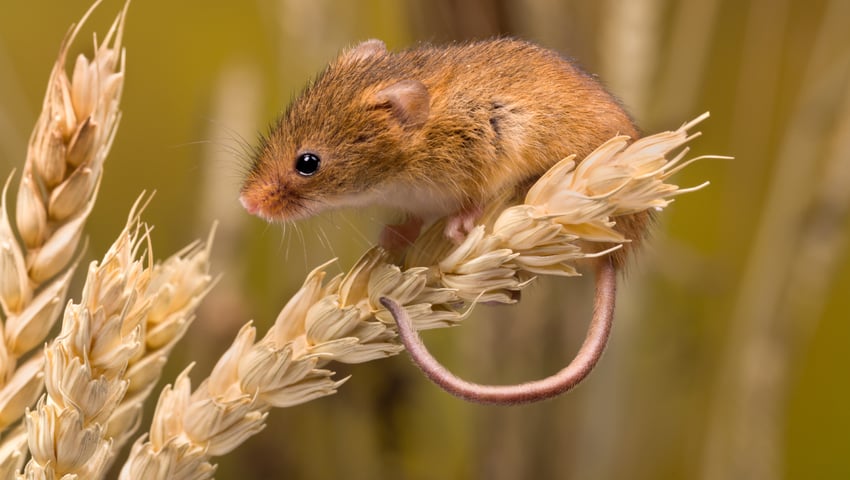Some of the world’s largest agriculture companies – including Olam Agri, ITC Limited, Sereni Fries Ltd, Kinazi Cassava Plant (KCP), Spice World Ltd, ETG and Premier Foods Ltd (PFL) – have announced a joint commitment to help the farmers in their supply chains reduce on-farm food losses by 50 per cent by 2030.
Together, these companies work with hundreds of thousands of farmers worldwide, forming a powerful alliance of multinational, national, and regional businesses, including in Africa. Their pre-competitive collaboration offers an opportunity for sharing knowledge and best practices to address food loss – what the World Resources Institute calls, “a critical issue in the global supply chain.”
Sunny Verghese, Co-founder & Group CEO of Olam Group, said, “About 40 per cent per cent of the global food supply is lost or wasted between farms and people’s plates. We know from recent research that food loss on farms is a much bigger problem than previously thought, and it’s happening across the globe – not just in developing countries, as many believe. This enormous waste hurts farmer incomes, food security, the climate, and costs over a trillion dollars every year.”
According to new research from Champions 12.3, the world is at risk of missing the UN’s Sustainable Development Goal 12.3, which aims to halve per capita global food waste at the retail and consumer levels and reduce food losses along production and supply chains, including post-harvest losses, by 2030.
The term ‘food loss’ refers to food that is unharvested or spoils before reaching the market, while ‘food waste’ refers to food that is thrown out or otherwise wasted by retailers and consumers. Food losses happen on farms for a variety of reasons, including poor harvesting practices, inadequate storage, changes in demand and a lack of alternative markets.
Verghese said, “Right now, we are not on track to meet the UN’s target on food loss and waste. But if enough governments and companies can prioritise the issue – as those that are part of today’s announcement have – we may still be able to realise significant benefits for people and the planet.”
Commenting on the work, led by WRI, Martin Lines, CEO of the Nature Friendly Farming Network (NFFN), said, “Moves to reduce food waste during the production process are extremely welcome. Currently we are throwing away around a third of all the food we produce in the UK. Tackling this would be a significant boost for food security and for the viability of farm businesses which lose out when products are rejected by suppliers after all the costs of growing or raising them have been incurred.
“However, it is also important to recognise that some nature-friendly farming practices do involve leaving some land for grazing, for biodiversity or for building soil health – and a reduction of losses in the field can have an impact on the wildlife that’s historically depended on them. As ever, a sustainable farming future requires finding the right balance between food production and aiding the recovery of nature.”
The Inter-governmental Panel on Climate Change estimates that halving food loss and waste alone could cut total greenhouse gas emissions by up to 5 per cent. It is also an important tactic for ensuring sufficient food in a world where nearly 1 in 3 people faces moderate or severe food insecurity.
Farmgate-facing agriculture companies are crucial to combatting food losses via initiatives often referred to as ‘out-grower programs’, which provide training, capacity-building, finance and access to technology and markets. In developing countries, these companies are especially important as farmer aggregators, engaging with farmers who are otherwise hard to reach.
This support is vital given that, worldwide, 84 per cent of farmers are smallholders – meaning they manage less than two hectares of land – yet they produce 32 per cent of all food globally.
Martin Munyiri, General Manager of Premier Foods Ltd, said, “PFL is committed to achieving a net zero target for operational emissions as well as a zero waste to landfill target by 2025. As we engage with thousands of small-scale farmers in our value chain, we also promote sustainable agricultural practices. This initiative is essential to our farmers as it will enhance on-farm activities to improve productivity and minimise food loss and waste. By equipping farmers with the necessary expertise, resources, and innovative tools, we aim to implement effective solutions that positively impact their livelihoods and the broader community.”
The new farm-level effort follows the ‘target-measure-act’ model pioneered by Champions 12.3 in its 10x20x30 initiative, which works with retailers and their suppliers to combat food loss and waste.
Over the past three years, 248 retailers and suppliers have joined 10x20x30, and those actively measuring and publicly reporting their data already have achieved an average 15.4 per cent reduction in food loss and waste.
